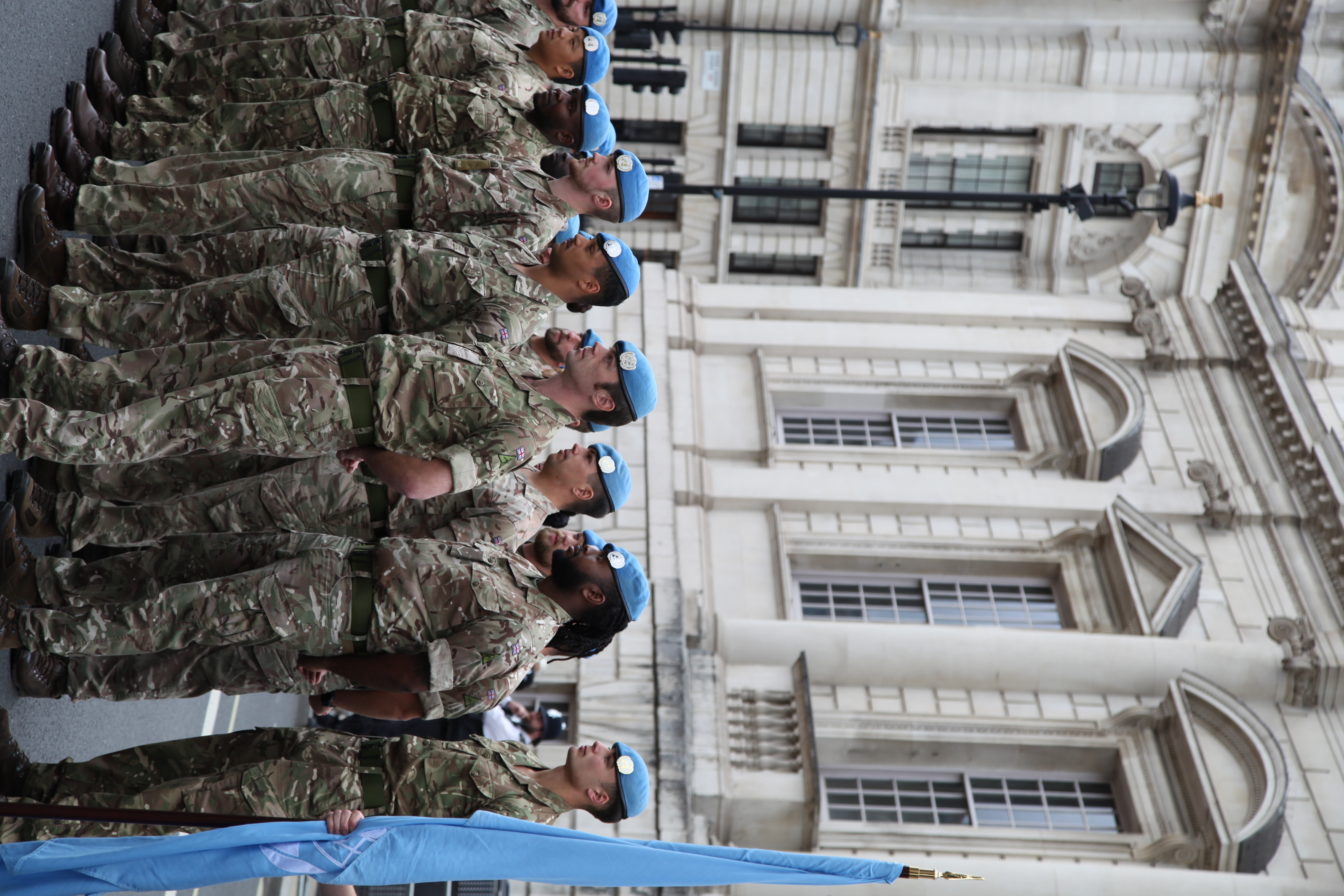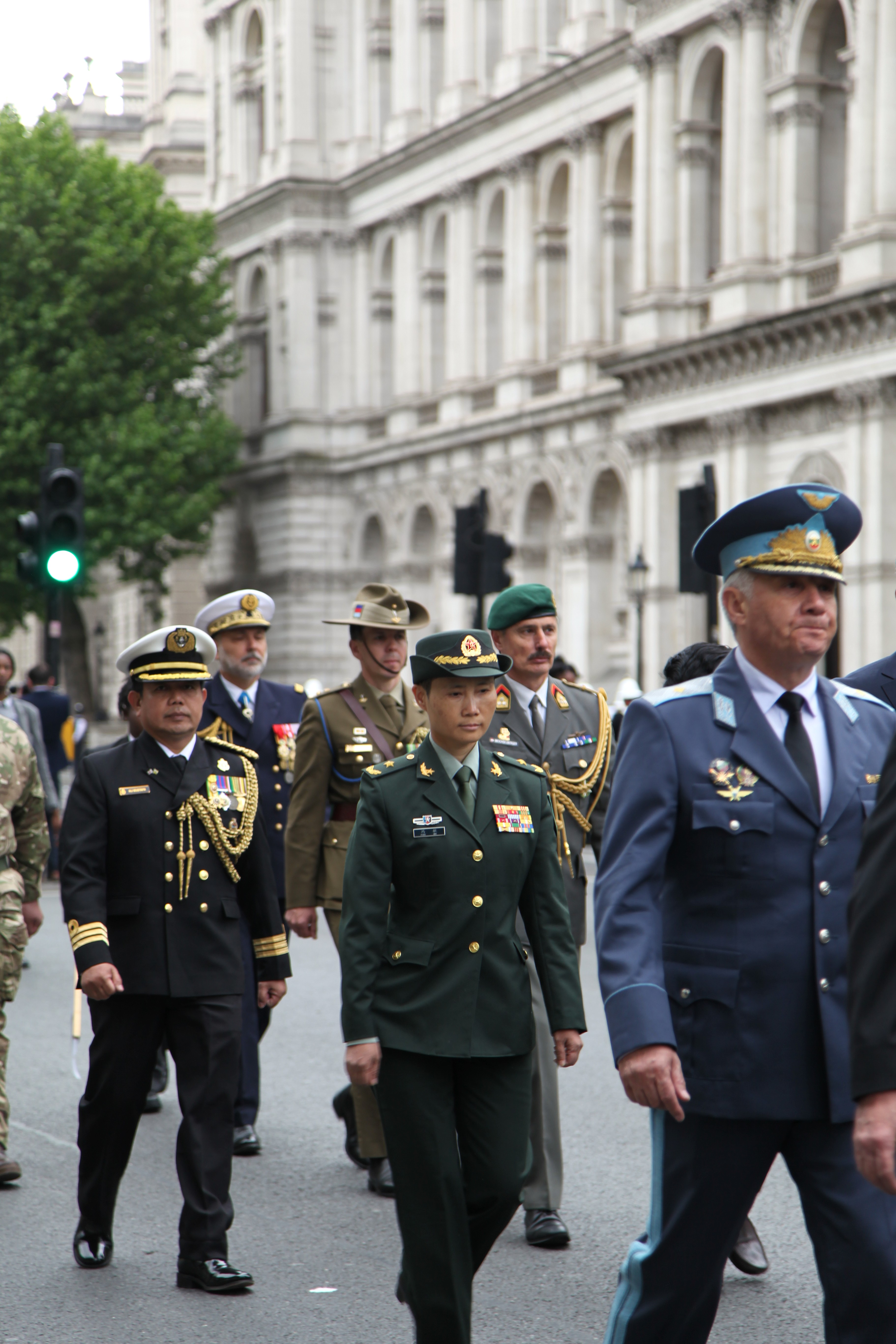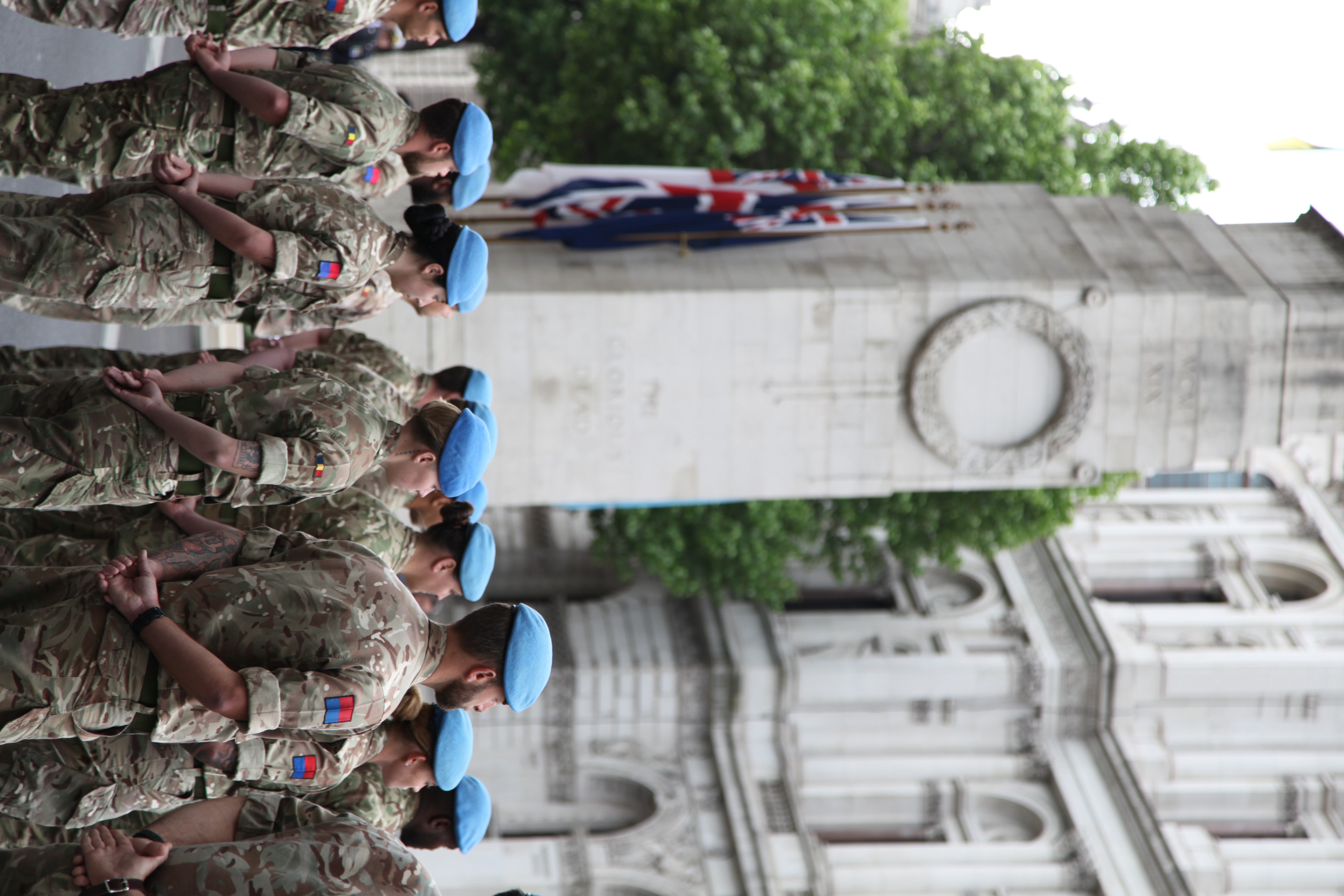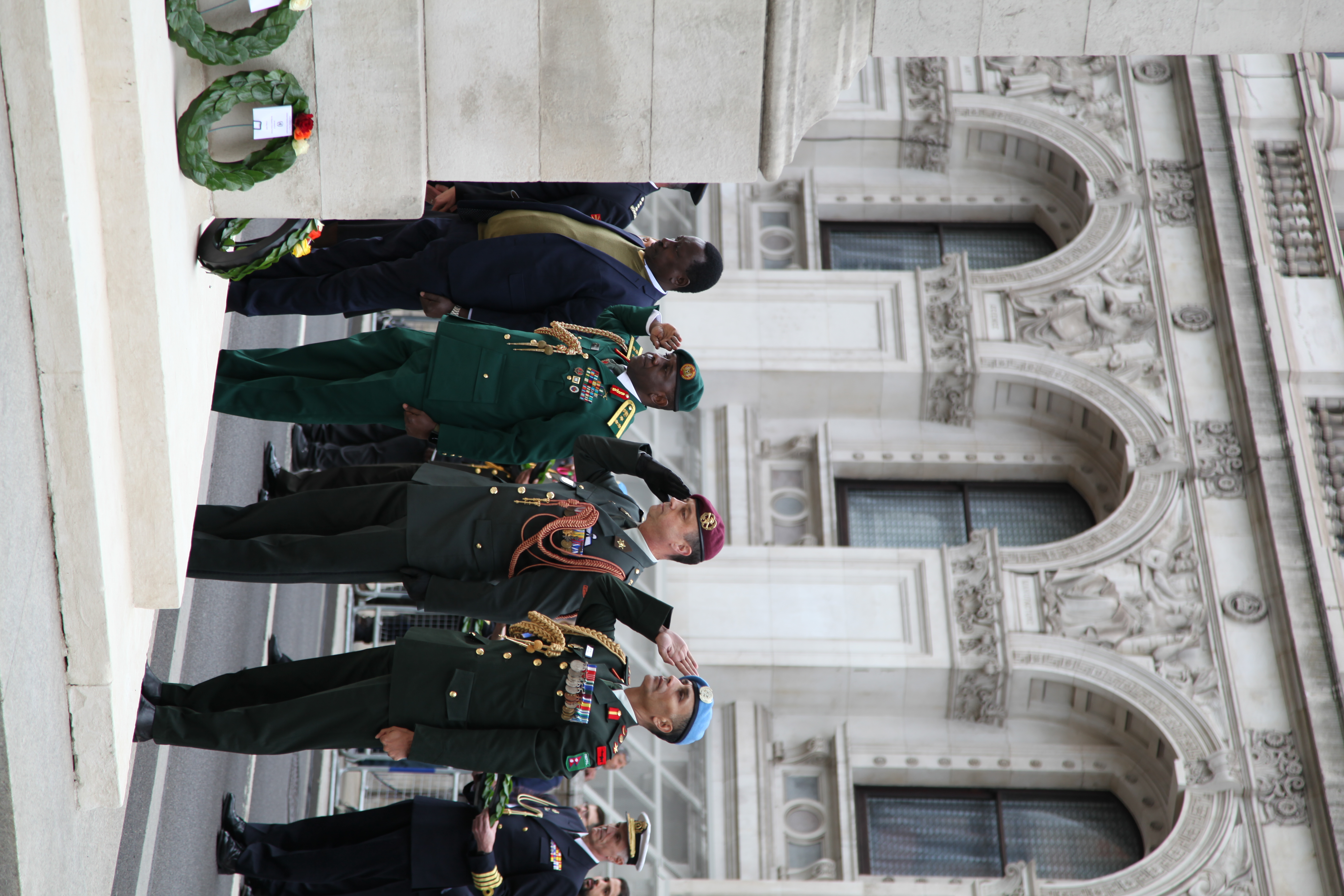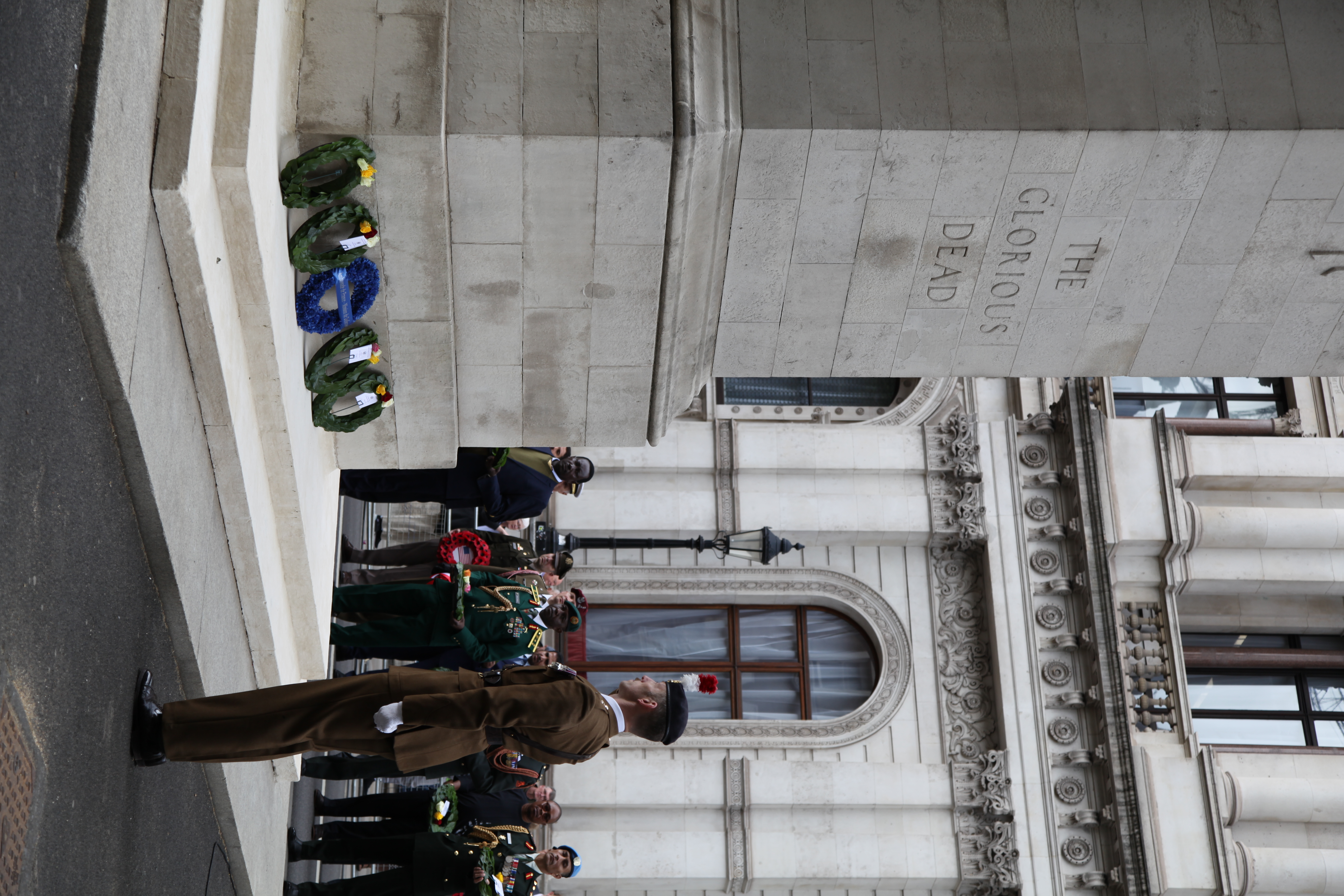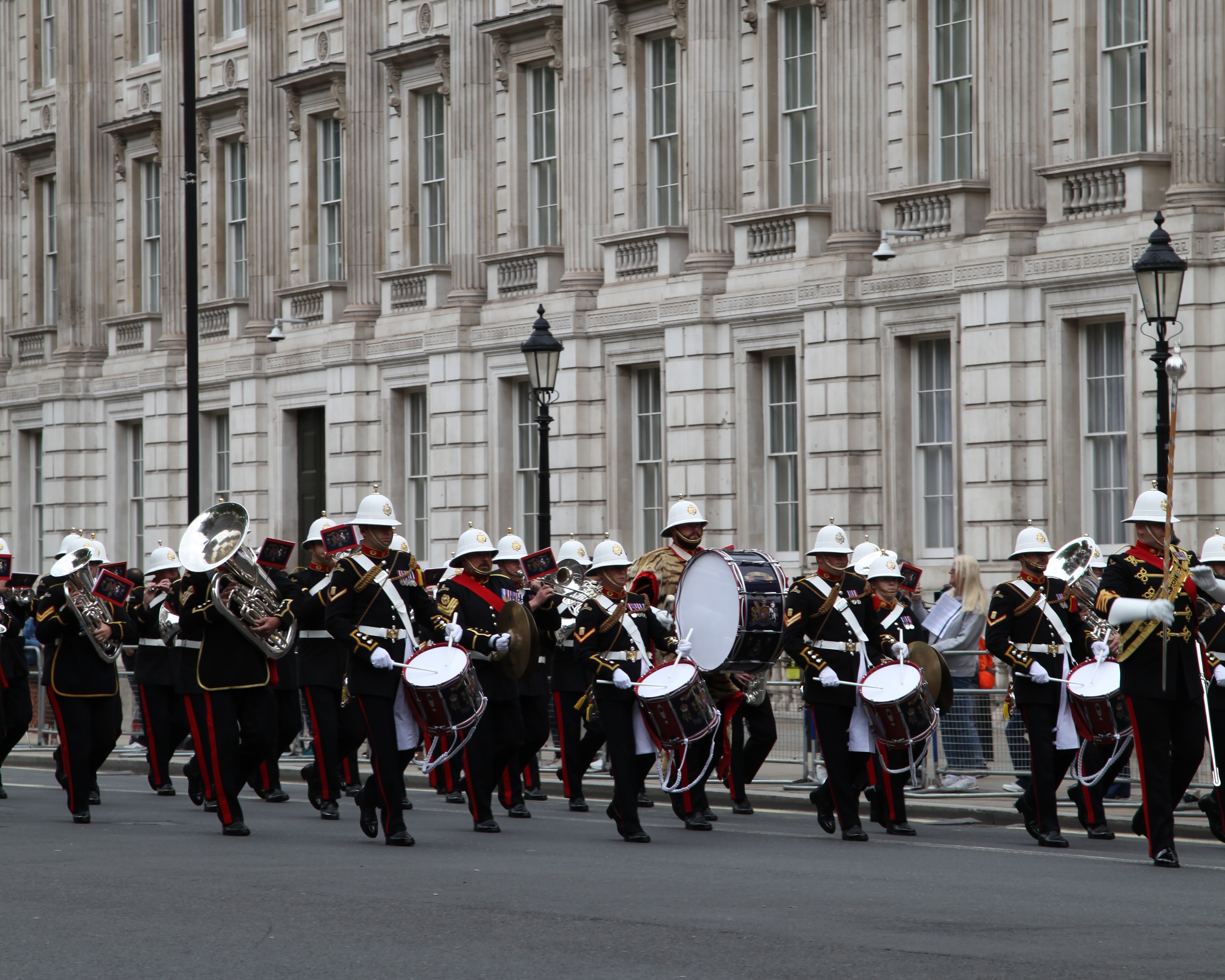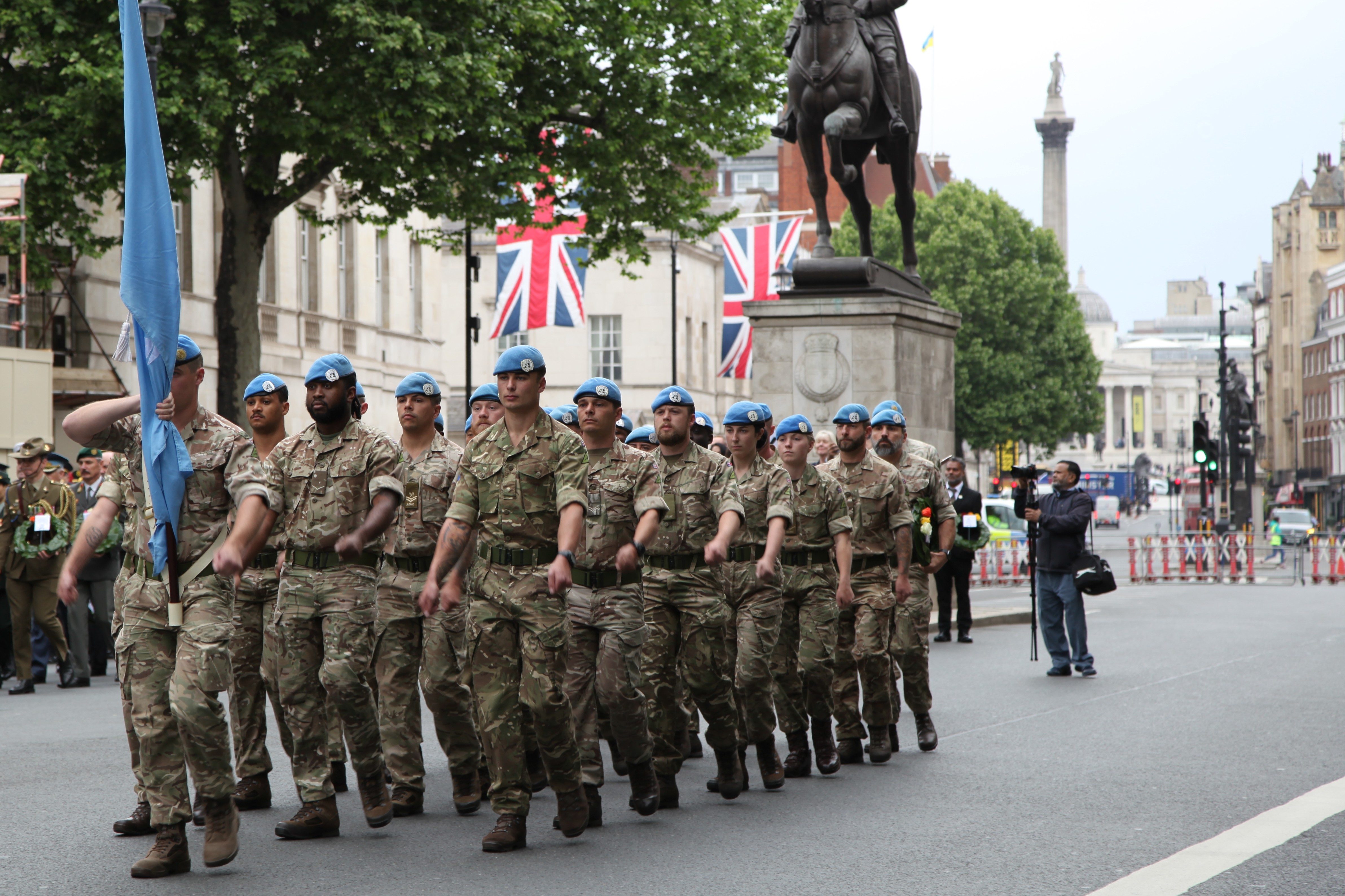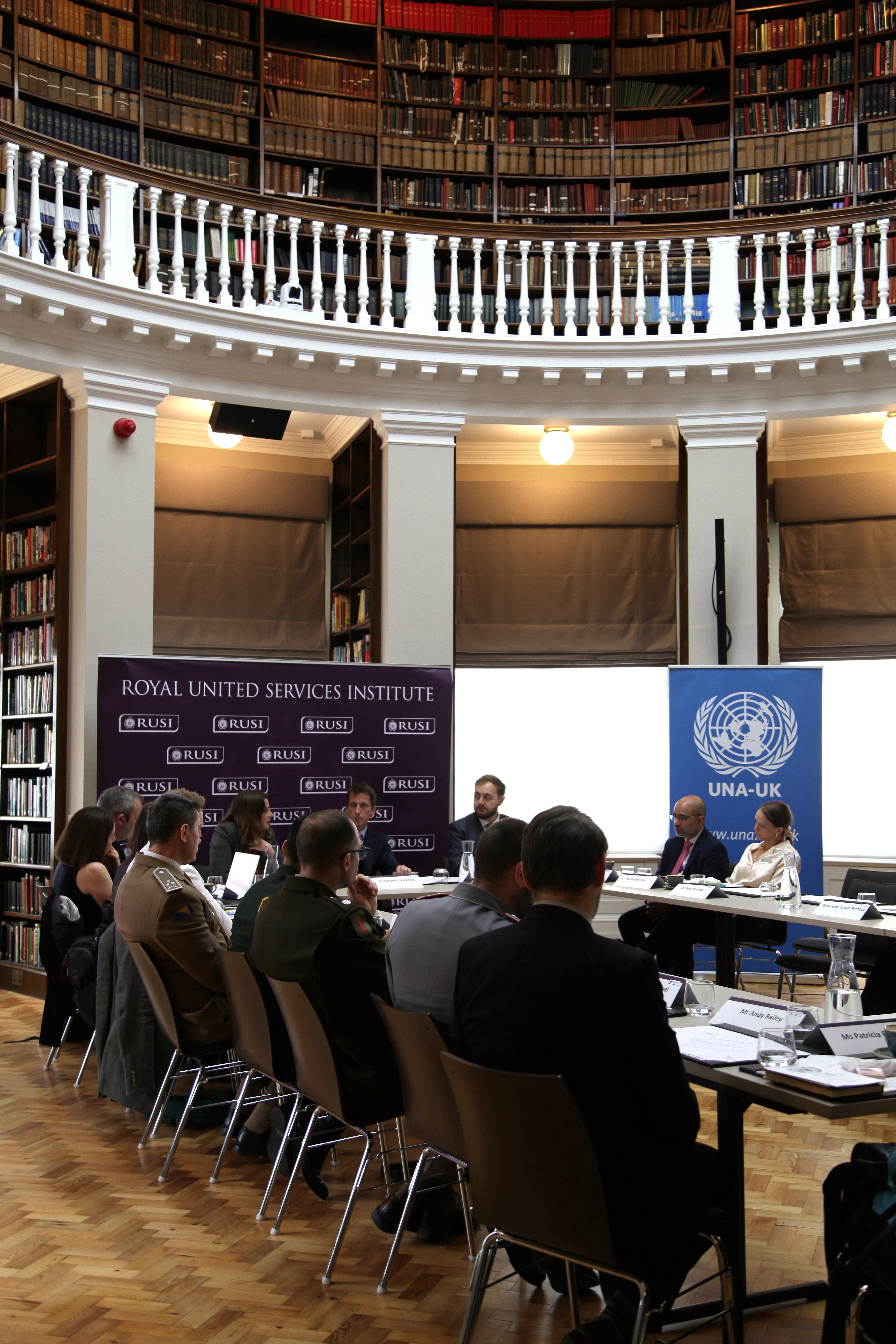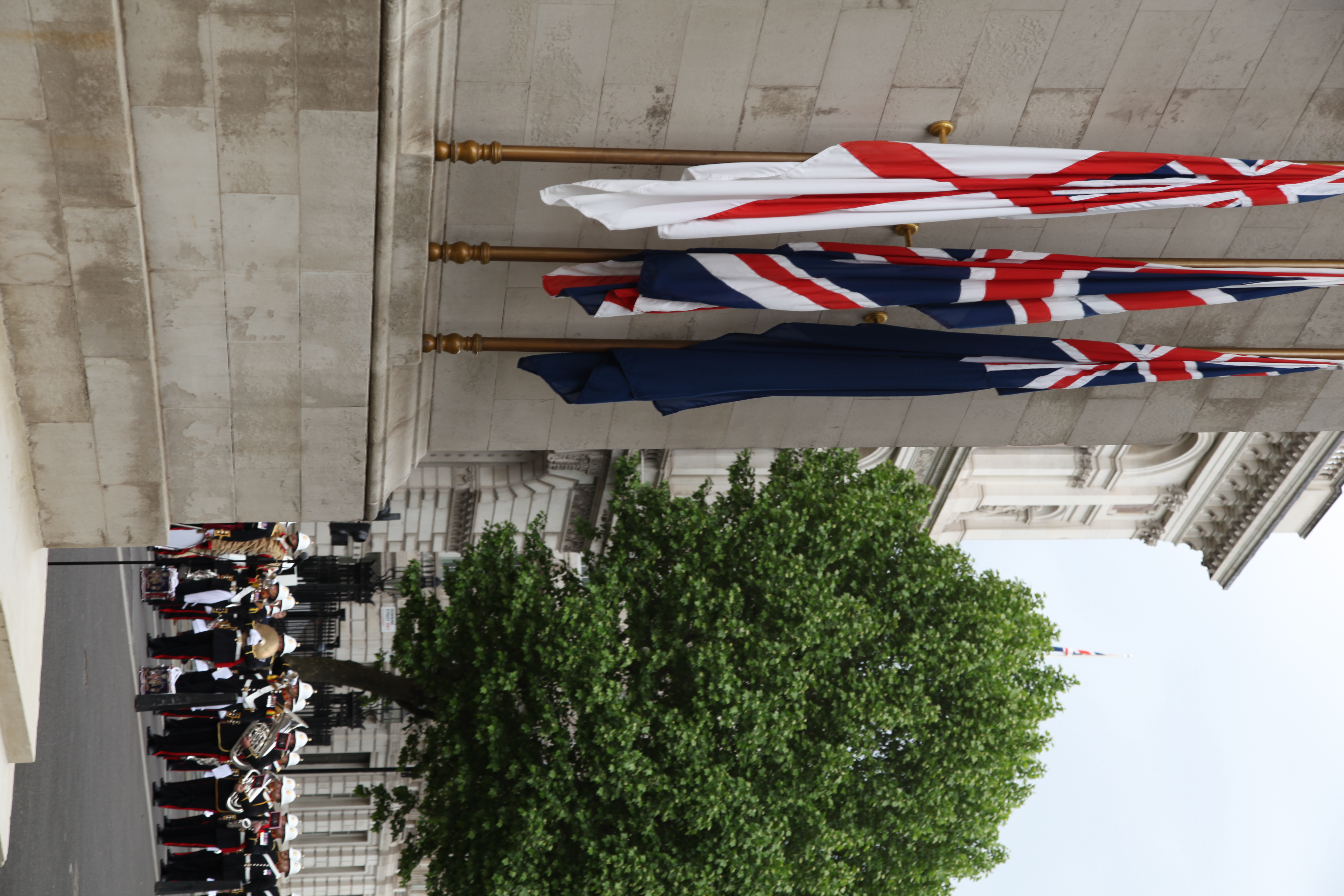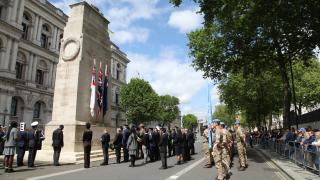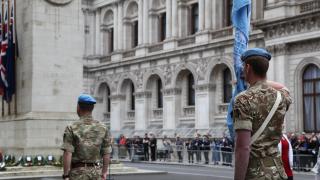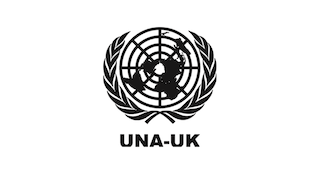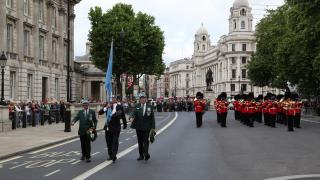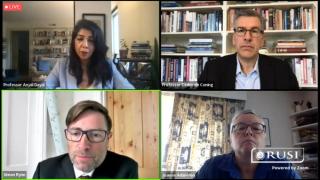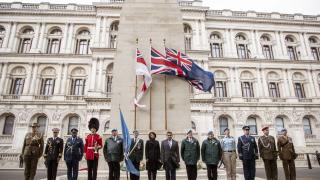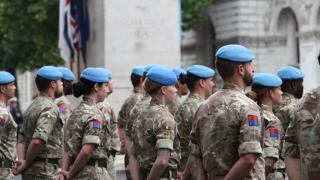
On 22 May, we marked UN Peacekeepers Day with a memorial ceremony and roundtable discussion, in partnership with UNA Westminster and the Royal United Services Institute (RUSI).
Each year in the lead up to the International Day of UN Peacekeepers, we bring together practitioners, diplomats, civil society, academics and military personnel for a discussion of the most pressing issues in peacekeeping today. This year's roundtable focused on how the UN can make better use of the full spectrum of its peace activities within multidimensional missions. Chaired by RUSI Visiting Fellow Commander Edward Black, the panel of experts included Al Brown, Dr Babu Rahman, Professor Sarah von Billerbeck and Dr Georgina Holmes.
In the opening session, attendees heard a report from the recent UN Peacekeeping Ministerial in Berlin, where states reaffirmed their commitment to making UN Peace Operations more effective through a variety of pledges that go beyond their assessed contributions to the budget. Minister for the Armed Forces, Luke Pollard, attended the Ministerial on behalf of the UK, which signalled its continued support for UN Peacekeeping by announcing more than 1 million pounds of investment. This funding includes specialist training for peacekeeping partners, and support for the Elsie Initiative Fund, which aims to enable more women to meaningfully participate in peace operations. Though it has been difficult to track trends in state pledges across ministerial meetings, participants noted increases in pledges to tackle mis- and disinformation in recent years, reflecting the significant threat this poses to political will and local support for mandates. The session concluded with discussion of the technological challenges and opportunities facing Peace Operations.
The second session focused on the spectrum of the UN’s peace activities, with discussion of key issues relating to optimising operations, including advancing the participation of women, lessons learned practice, partnership with host nations and local ownership of peacekeeping. Participants emphasised the importance of considering the full diversity of the UN’s peacekeeping activities when mandating PKOs and SPMs, as well as considering potential political and capacity constraints on achieving a solution.
Facing slimmed down budgets, the UN must seek efficiencies; the DPO’s ‘Future of Peacebuilding’ report, released ahead of the Ministerial in Berlin, outlined a more modular approach to Peace Operations. However, amidst these reforms, it is important that the UN retains its range of capabilities and expertise. UN Peacekeeping remains a unique tool; if it loses its expertise, it risks being under-prepared to respond to increasingly complex and diverse security challenges.
Peacekeepers' Day Memorial Ceremony
UNA-UK, together with UNA Westminster, held its annual memorial ceremony in remembrance of peacekeepers who have lost their lives in the service of global peace on 22 May following the roundtable. UN Peacekeepers who had recently arrived from the mission in Cyprus joined the ceremony at the Cenotaph in Whitehall.
Wreaths were laid on behalf of over 70 Embassies and High Commissions across London, as well as by representatives from HM Government, the Armed Forces and other national organisations.

